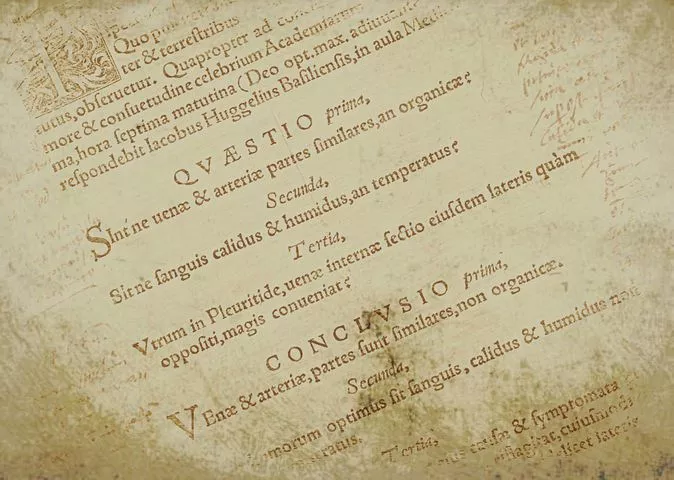How and Why Latin is a Dead Language
Shockingly, we are discussing how and why Latin is a dead language because its influence is still seen in modern languages like English. Amidst the many arguments made by different linguists about how important speaking Latin is, you begin to wonder why no country considers Latin as her official language.
Before we dive any deeper, what does it mean for a language to be a dead language? Does it mean that people who are dead have a language? Any language is considered a dead language if there are no native speakers of that language.
This is a sharp contrast to extinct language, which refers to languages without relevance or usefulness in human media of communication.
How Latin is a Dead Language
To begin this article from the roots, Latin sprung up wouldn’t be a bad idea. It is worthy of note that during the period when the Roman Catholic Church was at the peak of its powers, Latin was adopted as the official language. It was from this “Roman empire” that it became a universal language of communication, literature, intellectual development, and even science.
More importantly, Latin has remained, until today, the working language of the Holy See, the Supreme body of the Catholic Church, which is considered one of the richest churches in the world, even though the official language in Vatican City is Italian.
However, just before its adoption by the Roman Catholic Church, the people of the Lower Tiber River in an area called Latium are attributed to be the originators of the Latin language. It was from them that the Latin language spread to the Roman Empire before many parts of Europe and even Africa caught wind of the language.
The million-dollar question again is: how and why do people say Latin is a dead language these days? Before we attempt that question, it is pertinent to highlight that even though no country lays claim to Latin as its lingua franca, Latin has still found relevance in many other contexts despite being regarded as a dead language.
Romance languages have their roots in Latin. The roman name languages came as a result of Latin being the local language of the Roman folks. By the way, Ethnologue: Languages of the World classifies forty-five languages as Romance languages.
However, only about five of these languages account for ninety percent of Romance languages. These five languages are Italian, Spanish, French, Portuguese, and Romanian.
Just like Coptic, Sumerian, Akkadian, and popularly, Sanskrit, which are referred to as dead languages, the death of Latin has resulted in the rise of Romance languages like Spanish, French, and Italian, which take after the verb forms, grammar and certain intricacies from Latin.
Interestingly, these Romance languages were all developed in the previous territories of the Western Roman Empire.

Why is Latin a Dead Language?
The most obvious proof of how and why Latin is a dead language has to be because of its complexity. Latin is a complex language because of its high degree of inflection of tenses.
It seems as though almost every word in Classical Latin has to be tweaked based on the subject case, gender, mood, voice, or even aspect.
Classical Latin, or what is called, Liturgical or Ecclesiastical Latin, became much popular when the influence of the Catholic Church grew by leaps and bounds in Rome. The development of this language was instrumental to the discussion of Christian theology. It was only later that Latin became a lingua franca in Medieval Western Europe.
If essential communication was to be sustained, then the complexity of this Classical Latin had to be substituted. The substituted Latin is what is referred to as Vulgar Latin. And yes, Vulgar Latin, which is the simpler version, did do better in survival. The overwhelming complexity of Classical Latin ensured the transition to Vulgar Latin was much more manageable.
The result? Locals used this Vulgar Latin on an everyday basis. However, it wasn’t long until the Vulgar Latin faded away because the group that was used to Classical Latin couldn’t understand the new group that had now imbibed the simplified Vulgar Latin. This is what many historians refer to as the disintegration process of Latin.
This disintegration of Latin heralded some popular Romance languages like Spanish, Italian, Portuguese, Romanian, and many more. This is believed to have happened around the ninth century.
Even in these times, Vulgar Latin was still used until it was finally “killed in action” because it wasn’t used. The exciting part of it is that Greek, which was before Latin, is still spoken today.
A Dead Language That is Still Alive
So far, we have walked you through how Latin is a dead language and also why Latin is a dead language. Shouldn’t it surprise you that if no community uses Latin as its native language, why is Latin still learned? Why does its presence persist even up till now? How long does Latin have till it finally becomes an extinct language?
Well, as long as you are in the university studying philosophy, law, medicine, or any of those science courses, Latin wouldn’t become an extinct language. This is because, in the courses mentioned above, the Latin language is at the heart of what they learn.
Looking beyond the academic sector for a bit, remember those Romance languages we talked about earlier? Those languages which became popular at the rise of Western European empires? It turns out that because these Romance languages are spoken regularly these days, you wouldn’t be able to quickly learn them if you don’t have a good grasp of the Latin language.
Take, for instance, French Language. In Nigeria, after the English language, the French language is considered the second official language because of the borders the West African nation shares with many francophone countries. The popularity of the French Language would also mean the revival of Latin since French has strong roots in Latin. The same applies to every other Romance language.
Conclusion
We can also cite many classical literature texts, typically those full of poetic and rhetorical devices as found in famous poems; they were written in Latin language. By implication, those who are lovers of such books had to acquaint themselves with a good smattering of Latin. You can see why Latin has continued to be relevant in modern times.






